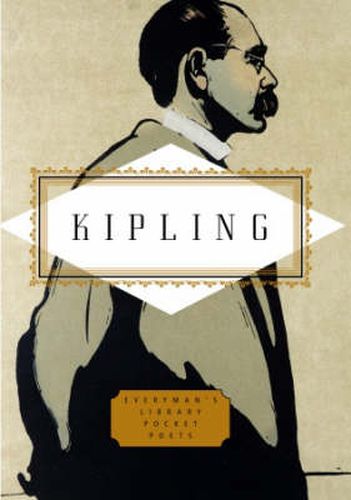Readings Newsletter
Become a Readings Member to make your shopping experience even easier.
Sign in or sign up for free!
You’re not far away from qualifying for FREE standard shipping within Australia
You’ve qualified for FREE standard shipping within Australia
The cart is loading…






Rudyard Kipling (1865-1936) is perhaps the most controversial major English poetof the last two centuries, not least because of his apparent enthusiasm for the empire. A child of British India, he first became famous for tales of imperial life, notably Kim, the Jungle Book and Barrack Room Ballads. Kipling wrote verse in every classical form from the epigram to the ode, but his most distinctive gift was for the ballads and narrative poems in which he draws vivid characters in universal situations and articulates profound truths in plain language. Yet he was also a subtle and deeply affecting anatomist of the human heart, with a feeling for the natural world which rivals his younger contemporary, D. H. Lawrence. Shattered by World War I in which he lost his only son, his work darkens and deepens in later years, but never loses its extraordinary vitality.
$9.00 standard shipping within Australia
FREE standard shipping within Australia for orders over $100.00
Express & International shipping calculated at checkout
Stock availability can be subject to change without notice. We recommend calling the shop or contacting our online team to check availability of low stock items. Please see our Shopping Online page for more details.
Rudyard Kipling (1865-1936) is perhaps the most controversial major English poetof the last two centuries, not least because of his apparent enthusiasm for the empire. A child of British India, he first became famous for tales of imperial life, notably Kim, the Jungle Book and Barrack Room Ballads. Kipling wrote verse in every classical form from the epigram to the ode, but his most distinctive gift was for the ballads and narrative poems in which he draws vivid characters in universal situations and articulates profound truths in plain language. Yet he was also a subtle and deeply affecting anatomist of the human heart, with a feeling for the natural world which rivals his younger contemporary, D. H. Lawrence. Shattered by World War I in which he lost his only son, his work darkens and deepens in later years, but never loses its extraordinary vitality.